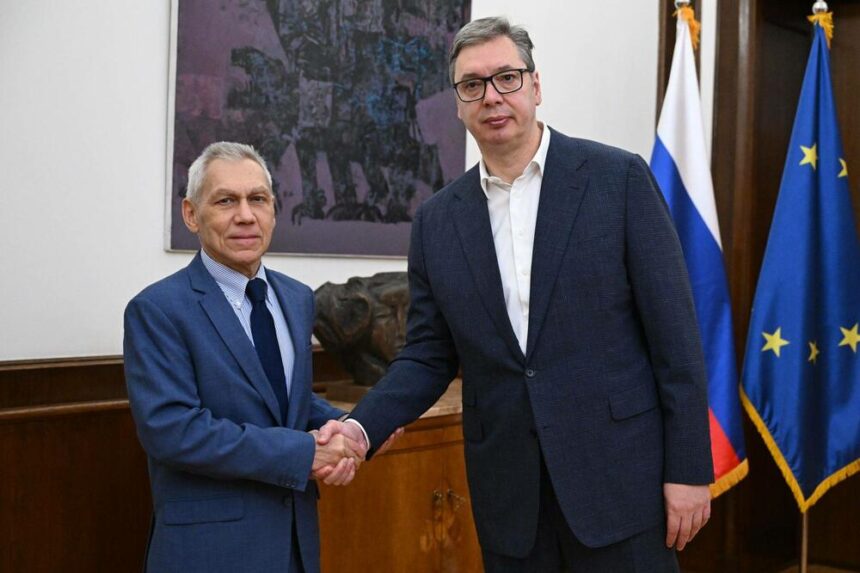Serbia’s delicate balancing act between its European ambitions and deep ties to Moscow is showing serious cracks, as the government struggles to navigate American sanctions on its largest oil company and secure energy supplies for the winter.
According to AFP, President Aleksandar Vučić has been “desperately” trying since October to remove U.S. sanctions on NIS, the majority Russian-owned oil giant. Energy Minister Dubravka Đedović Handanović warned this week that time is running out, with NIS reserves projected to last only until 25 November. Without urgent action, fuel shortages could hit the Serbian market, as the country lacks capacity to import enough refined products to meet demand.
Analysts tell AFP that Russia has so far only shuffled shares within NIS, and the “most realistic option” would be for the Serbian state to take control of the company.
Gas Dependency Heightens Risks
While coal remains Serbia’s main energy source, gas is critical for heating major cities, and Serbia remains largely dependent on Russia. The last long-term contract expired months ago, and Moscow has instead offered short-term agreements, the latest ending on 31 December 2025. Serbia receives 6 million cubic meters of gas daily via the Turkish Stream pipeline, covering nearly 90% of its gas needs.
Even if Serbia secures a new deal, European plans to phase out Russian gas from 2026 threaten to sever this supply route. Experts warn these short-term contracts are designed to pressure Serbia, leaving Vučić’s government vulnerable to both higher prices and political leverage from Moscow.
Caught Between East and West
AFP notes that Serbia, as an EU candidate, remains one of the few European states refusing sanctions on Russia and is seen as a Kremlin ally. Last autumn, Vučić accused Russia of using gas contracts to block nationalization of NIS, while Moscow expressed frustration at his attempts to appease both East and West.
Former diplomat Branka Latinović told AFP that Vučić is “trapped in a crisis of his own making,” a consequence of years of zig-zagging foreign policy. Serbia is now paying the price for a failed strategy of balancing Moscow and Brussels, with the country’s energy security and European aspirations both at risk.
AFP concludes that the cracks in Serbia’s diplomatic balancing act are becoming increasingly visible, exposing Vučić’s government to potential political, economic, and social turmoil this winter.





